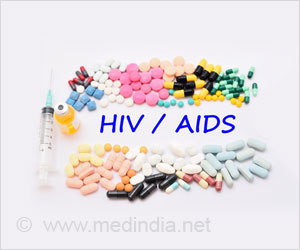Washing the penis minutes after sex increased the risk of acquiring H.I.V. in uncircumcised men, a study in Uganda says.
HIV keeps surprising experts. The latest is the finding that washing the penis minutes after sex increased the risk of acquiring H.I.V. in uncircumcised men.
The sooner the washing, the greater the risk of becoming infected, the study found. Delaying washing for at least 10 minutes after sex significantly lowered the risk of H.I.V. infection, Dr. Fredrick E. Makumbi reported on July 25 at an International AIDS Society Conference in Sydney, Australia.The researchers do not have a precise explanation for the findings, which challenge common wisdom and the teaching of many infectious disease experts who urge penile cleansing as part of good genital hygiene. Health experts have suggested that washing the penis after sex could prevent potentially infectious vaginal secretions from entering the body through the uncircumcised penis.
Washing the penis after sex is common in Africa. To determine whether washing could be recommended as an alternative to male circumcision, Dr. Makumbi’s team from the Makerere University Institute of Public Health studied 2,552 uncircumcised men in the Rakai district of Uganda.
The men, ages 15 to 49, were uncircumcised and not H.I.V. infected when they enrolled. Eighty-three percent said they washed with all sex partners. The researchers asked about when and how the men washed after intercourse at enrollment and 6, 12 and 24 months later, including whether they washed with or without cloths.
Because of a slip-up, the researchers did not ask details of how the cleansing was done or directly about using soap, said Dr. Ronald H. Gray, a co-author from the Johns Hopkins Bloomberg School of Public Health. Some soaps used in Africa are more irritating than those used elsewhere.
Men who washed within three minutes had a 2.3 percent risk of H.I.V. infection compared with 0.4 percent among those who delayed washing for 10 or more minutes.
The washing analysis was a secondary part of a study undertaken to determine the effectiveness of male circumcision against H.I.V. infection. Earlier reports had shown that circumcision was protective.
One message from the study, Dr. Gray said, “is that there ought to be a little time left for postcoital cuddling before you go and wash.”
“Don’t just finish and jump out of bed,” he said.
Dr. Makumbi and other AIDS experts said they did not know why the washing practice increased vulnerability to H.I.V. infection, but offered various explanations. One is that the acidity of vaginal secretions may impair the ability of the AIDS virus to survive on the penis. Delayed cleansing — and longer exposure to the vaginal secretions — may then reduce viral infectivity.
Another is that use of water, which has a neutral pH (a measure of the acidity or alkalinity of a solution), may encourage viral survival and possible infectivity. H.I.V. apparently needs to be in a fluid to cross the
mucosa to infect cells, Dr. Gray said. If the H.I.V.-contaminated fluid dries, its infectivity may decrease. Adding water could resuspend H.I.V. to make it more infectious.
The study findings are counterintuitive, said Dr. Merle A. Sande, an infectious diseases expert at the University of Washington in Seattle, and “show why you have to do the studies, because until you do them, you just don’t know.”
He added, “There is still so much we don’t understand about the complex factors that influence H.I.V. transmission in the genital tract, but this important study will help.”
Source-Medindia
GPL/S







